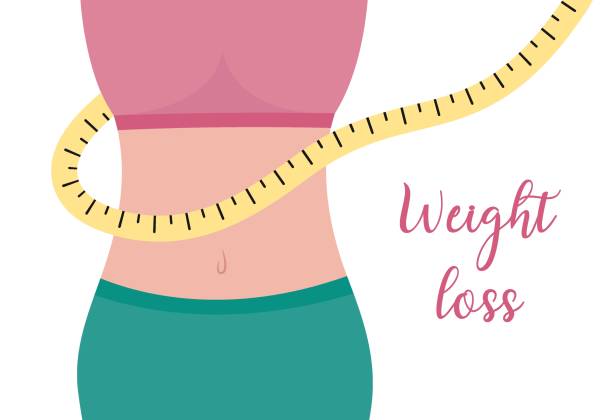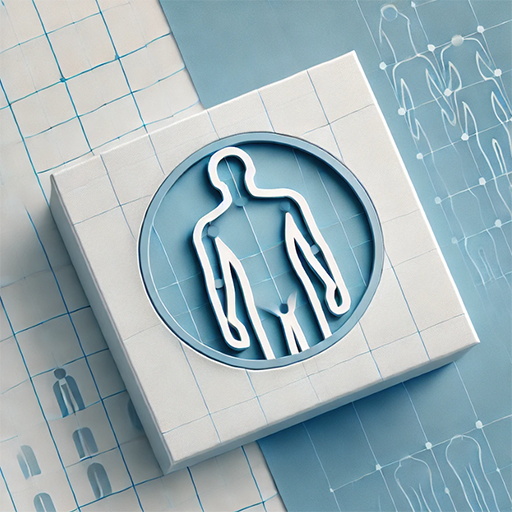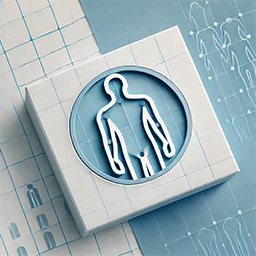For many people, weight loss is about more than just shedding pounds—it’s about achieving a healthier, happier version of themselves. However, losing weight is not always easy. Too often, people turn to quick fixes like diet pills or extreme exercise routines that can harm their bodies. The good news is that healthy weight loss is possible, and it doesn’t require drastic measures. In this article, we will explore how you can lose weight in a healthy, sustainable way, and keep it off for good.
What is Healthy Weight Loss?
Healthy weight loss refers to losing body fat through a balanced combination of diet, exercise, and lifestyle changes. Unlike unhealthy methods that involve starvation, excessive exercise, or taking harmful substances, healthy weight loss focuses on gradual changes that improve overall well-being.
The goal is to lose fat, not just weight, which means it’s important to pay attention to what you eat, how much you move, and how you care for your body. Healthy weight loss isn’t an overnight process—it takes time, patience, and consistency. Let’s break down how you can achieve healthy weight loss while feeling your best.
Setting Realistic Goals for Healthy Weight Loss
Achieving healthy weight loss starts with setting realistic, achievable goals. One effective method is using SMART goals: Specific, Measurable, Achievable, Relevant, and Time-based.
- Specific: Define exactly what you want to achieve. Instead of saying “I want to lose weight,” try “I want to lose 10 pounds in 3 months.”
- Measurable: Track your progress. This could be through weighing yourself regularly or taking measurements of your waist, hips, and other areas.
- Achievable: Make sure your goal is realistic. Losing 1-2 pounds per week is healthy, and it’s more likely you’ll keep the weight off long-term.
- Relevant: Ensure that your goal aligns with your overall health and lifestyle. It’s about making lasting changes, not just temporary fixes.
- Time-based: Set a clear timeline. This helps keep you motivated and gives you a deadline to work towards.
When setting goals, keep in mind that healthy weight loss is a slow, steady journey. If you don’t see changes immediately, don’t get discouraged. Remember, it can take months before significant weight loss is noticeable.

Why a Healthy Diet Matters for Weight Loss
Diet plays a crucial role in healthy weight loss. The food you eat provides the nutrients and energy your body needs to function properly, and it’s important to choose foods that nourish you while helping you reach your weight loss goals.
Start by focusing on a balanced diet that includes:
- Fruits and Vegetables: Rich in fiber and low in calories, they help fill you up without adding extra pounds.
- Whole Grains: Choose whole grains like brown rice, oats, and quinoa instead of refined carbs. These provide steady energy and are more satisfying.
- Lean Proteins: Protein helps build muscle and keeps you feeling full. Include lean meats, fish, eggs, and plant-based proteins like beans and lentils.
- Healthy Fats: Avocados, nuts, seeds, and olive oil offer heart-healthy fats that are good for your body in moderation.
Avoid crash diets that severely limit calories. While cutting calories is necessary for weight loss, starving your body can slow down your metabolism, making it harder to lose weight in the long run.
The Role of Exercise in Healthy Weight Loss
Exercise is another key factor in achieving healthy weight loss. Not only does it help burn calories, but it also improves your mood, boosts your energy, and strengthens your muscles.
Aim for a combination of cardio and strength training:
- Cardio: Activities like walking, jogging, cycling, or swimming help burn calories and improve heart health.
- Strength Training: Lifting weights or doing bodyweight exercises like squats and push-ups builds muscle, which can help increase your metabolism and burn more calories, even when you’re not exercising.
The Centers for Disease Control and Prevention (CDC) recommends at least 150 minutes of moderate-intensity aerobic activity, like brisk walking, each week, along with muscle-strengthening activities twice a week.

How to Stay Motivated Through Setbacks
Weight loss is often a challenging process, and setbacks are a normal part of the journey. It’s essential to stay motivated and keep pushing forward, even when things don’t go as planned.
Here are a few tips to help you stay on track:
- Stay Positive: Focus on the progress you’ve made, no matter how small. Celebrate every victory, from losing a pound to fitting into a pair of jeans you couldn’t wear before.
- Find Support: Share your goals with friends or family who can offer encouragement. Joining a group or finding a workout buddy can help you stay motivated.
- Be Patient: Remember that weight loss takes time. Don’t expect dramatic changes overnight. If you stay committed, you’ll start seeing results.
Making Time for Fitness in a Busy Life
One of the biggest challenges people face when trying to lose weight is finding time to exercise. With busy work schedules, family commitments, and social obligations, it can be hard to make fitness a priority.
Here are some tips for finding time for exercise:
- Schedule it: Treat exercise like an appointment and add it to your calendar.
- Break it up: If you can’t find a full 30 minutes for a workout, try breaking it up into smaller sessions throughout the day.
- Make it fun: Choose activities you enjoy, like dancing, hiking, or playing sports, so it doesn’t feel like a chore.
The Importance of Self-Care in Weight Loss
Taking care of yourself is just as important as diet and exercise when it comes to maintaining a healthy weight. Self-care helps reduce stress and emotional eating, which can sabotage your weight loss efforts.
Self-care includes:
- Getting enough sleep: Aim for 7-9 hours of quality sleep each night. Lack of sleep can lead to weight gain by affecting hunger hormones.
- Relaxation: Stress can trigger overeating and cravings. Take time to relax, whether through meditation, deep breathing, or simply taking a break from your daily routine.
Conclusion
Healthy weight loss is achievable with the right mindset, a balanced diet, regular exercise, and plenty of self-care. Focus on making small, sustainable changes, and remember that weight loss is a journey, not a race. By setting realistic goals and staying consistent, you can lose weight and keep it off for good, all while improving your overall health and well-being.
Start today by incorporating healthy habits into your life, and enjoy the long-term benefits of a healthier body and mind!



